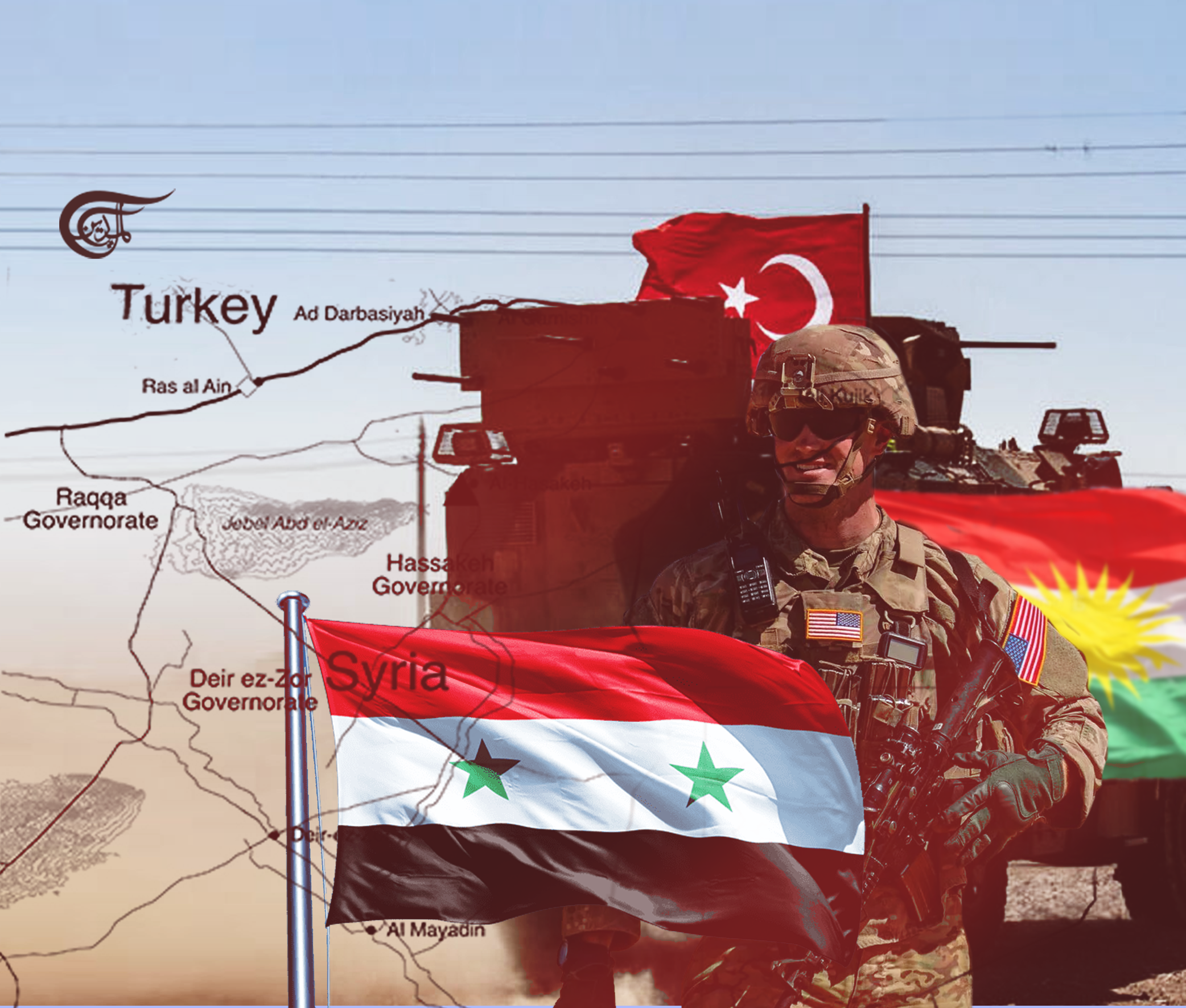Northeastern Syria and beyond, between Westphalia and Orwell
Some western states seem to be developing an Orwellian foreign policy condemned to the same failure as that of France, the UK and the US.
Since 1648 states are the most relevant and decisive actors in international relations. The Peace of Westphalia of that that year consecrated such a fundamental principle, subsequently developed in every single clause of international law. The purpose was to consolidate a steady world order. Even those rogue states that have tried to cover their dysfunctionalities in the international arena, especially after the end of the Cold War, by promoting other apparently non-state foreign policy tools, always come back to Westphalia. Some decrepit but not sclerotic former empires and other not yet fully self-assumed new ones – France, the UK and the US - have promoted in their interest aid NGOs, their “civil societies” and other pretended international actors. However and when needed, they inevitably end up recurring to those consolidated instruments where states, but only states, are called to deal with world issues.
A self-evident example of this is the situation of northeastern Syria. After years of violating, by all means, Syria’s state sovereignty in the area, France, the UK and the US finally seem to start coming to terms with reality. They have recently admitted in the UN Security Council that any “humanitarian” aid and other not so well intentioned materials entering through the Jaroubiya border-crossing with Iraq without the approval of the Syrian state violates international law. During the last decade, the transit point has been used to destabilize Syria, sneaking into the country not just weapons, but fighters with various backgrounds and bad intentions and smuggling out Syria’s petrol, wheat, antiquities and other resources.
At the expense of the rights and well-being of a majority of the area’s population, all those non-Westphalian instruments of foreign policy helped to create the fiction that spots of Syrian territory are ruled by a consolidated and irreversible Kurdish, postmodern regime, the very embryo of a wishful thinking statelet in the best interest of those powers and “Israel”. Such a project pretends to be unfolded against the internationally recognized rights of a preexistent Syrian people. In 1919, Syrians expressed to the King-Crane Commission their unequivocal will to consolidate inside the historical borders of Bilad al-Sham a unitary state that could guarantee the multireligious and multiethnic social character of the long-lived Syrian people (see Atassi’s book Syria the strength of an idea).
Kurdish militias and political organizations in northeastern Syria immediately accused the blow in the UNSC. In practical terms, they were abandoned to their fate vis-a-vis Turkey. That’s why now they consider as traitors those who, in the UNSC, proved to be just egotistical and temporary patrons. However - and better not forget - those half-hearted sponsors of some Kurds are – like the Syrian Arab Republic- full states that still rely essentially on the Westphalian order in decision making. The rest is just an Orwellian dystopia, defined as an imagined world that when pretends to become reality, could bring the people exposed to the experiment to “wretched, dehumanized, fearful lives”.
Ask the people of the neighborhoods of the Syrian cities of Qamishli or Hasaka close to the disconnected areas where some recently arrived Kurds, detached from the majority of Syrian Kurds (Gunther’s book Out of nowhere), have tried to impose their so-called “autonomous administrative zones.” Arabs, Assyrians, Armenians and native Syrian Kurds alike, have been persecuted by SDF militias (Syrian Democratic Forces) when they demonstrated against the blockade imposed by gunmen to the free transit of food, medicines, fuel and even drinking water. The latter increasingly needed as Turkish occupation forces step up the cut of supply.
George Orwell himself made crystal clear through his novels, but also in his non-fictional essays, that those dangerous dystopias are often imposed through corrupting the use of language, “to make lies sound truthful and murder respectable.” That linguistic propaganda includes twisting toponymic references to the extreme, pretending that the name of a German railway company is a Kurdish word that precedes the Arab name of a Syrian town.
The most shocking issue is that some states, which thanks to Westphalian principles, but also to international law, are entitled to act internationally, have fallen into the state of matters defined by the author of Animal Farm, Homage to Catalonia, 1984 and Politics and the English language. Some western states seem to be developing an Orwellian foreign policy condemned to the same failure as that of France, the UK and the US.
During the same week that the new Spanish minister of foreign affairs set as a priority a fence-mending with Morocco, the local assembly of the Spanish northeastern region of Catalonia admitted to discuss and vote a resolution forcing the regional government to recognize the so-called “autonomous administration of northeastern Syria”. The proposal is sponsored by several regional parties, including one in the Spanish national government and others who lent their votes so that Prime Minister Pedro Sánchez could stay in office.
The resolution’s draft is a dystopia in itself, an Orientalist delusion, in the sense depicted by Edward Said. Otherwise, how could it be understood that in the same text, the pretended ambitions of some Kurds in Syria are identified with the internationally recognized right of self-determination as Sahrawis and Palestinians? It’s even more bizarre if one considers the declared goal of Spain’s new minister of foreign affairs and the fact that some of the resolution’s sponsors have a long tradition, either for biographical or political reasons, of supporting the same “Israel” that denies Palestinian and Sahrawi rights. All that is to consider without mentioning how in the proposed text they confuse ethnic with religious backgrounds and ignore Syrian Kurds, which outnumber those newcomers from Turkey to the northeast, not to mention Syrian national heroes like Ibrahim Hanano or a wide list of Syrian presidents, prime ministers or Syrian political party leaders of Kurdish backgrounds.
The matter represents a Spanish state self-inflicted and unforced harm because even though Catalonia’s regional administration is the maximum expression of the Spanish state in that part of its territory, Spain’s foreign policy and action can only be performed by the Spanish national Government. The resolution talks about an imprecise “municipal confederalism” in northeastern Syria. Even stranger if it’s considered that in 2018 the advocates of that dystopia refused to participate in Syrian national municipal elections. What a misinformed and parochial homage to Catalonia, and above all to Spain, which being entitled since Westphalia to act internationally, seems to take, however, a naïve, "confederal" and Orwellian approach to the Middle East.

 Pablo Sapag
Pablo Sapag
 7 Min Read
7 Min Read












